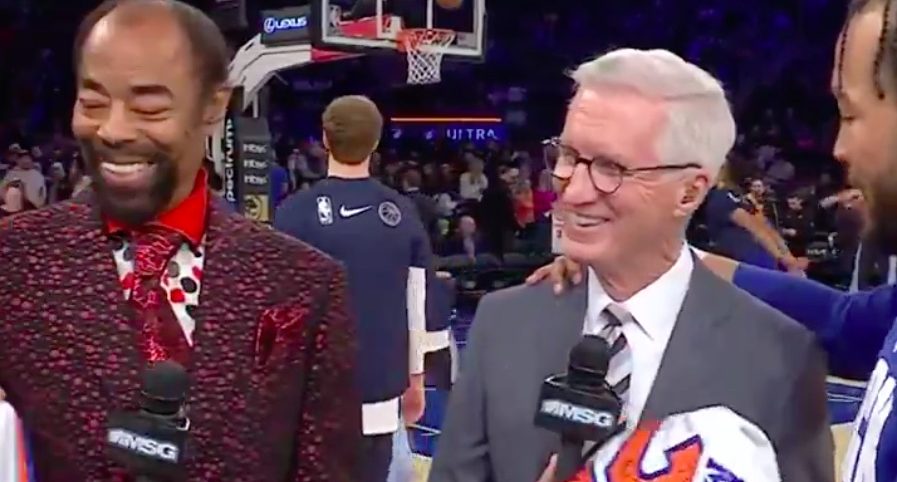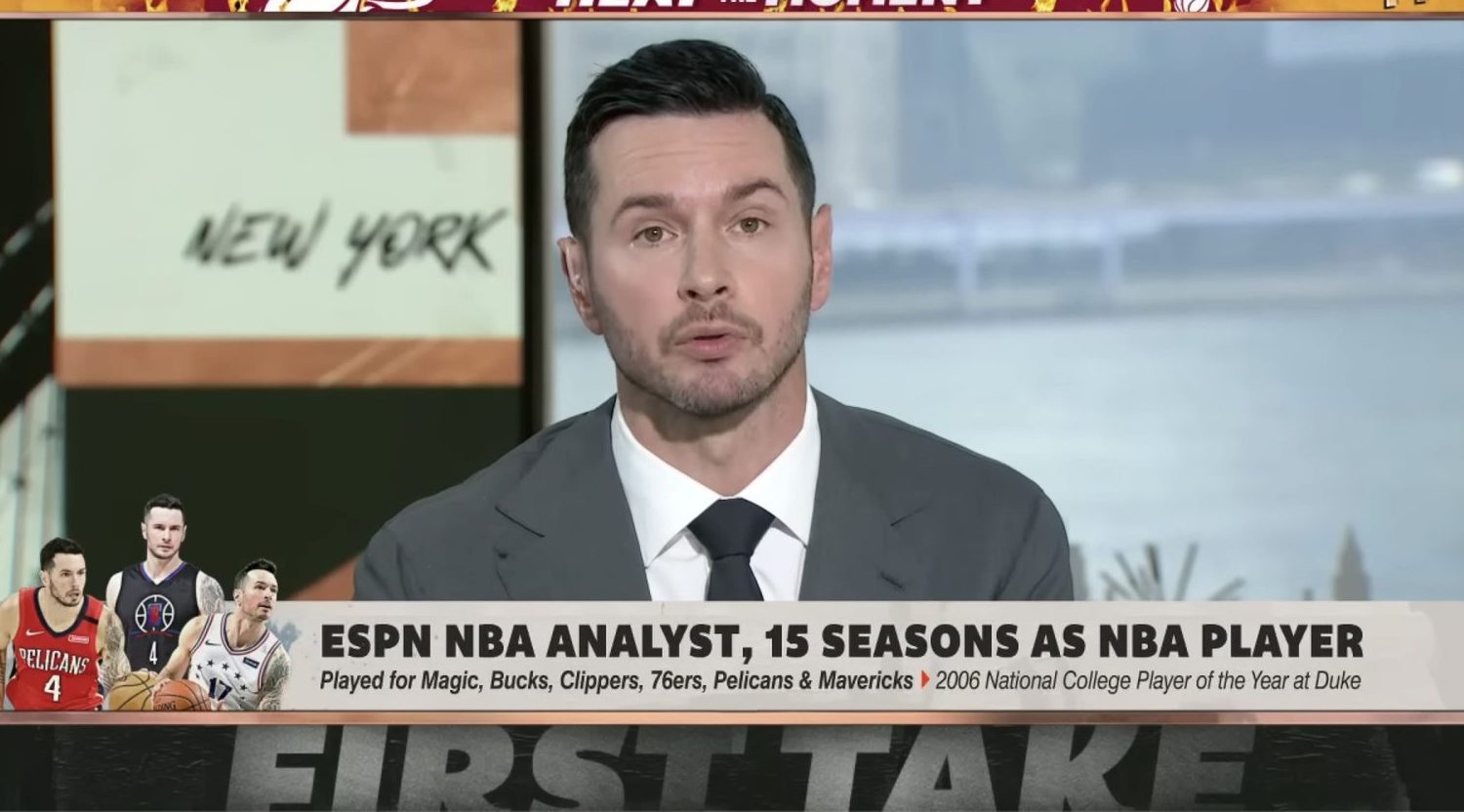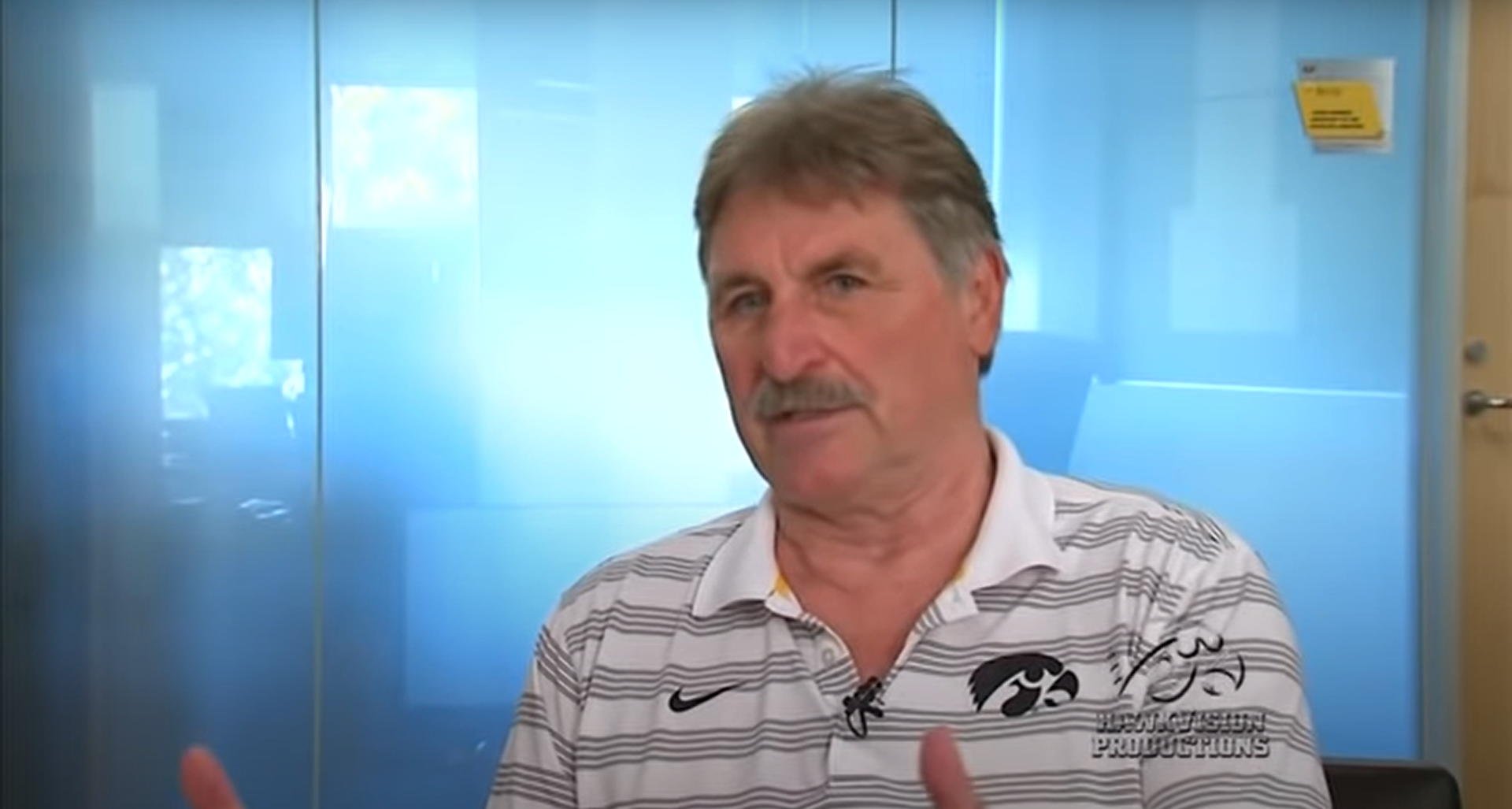ESPN’s relationship with the Poynter Institute is back in the spotlight thanks to a letter to the Editor column on the Sports Business Journal by Patrick Steigman, ESPN.com’s Editor-in-Chief. The letter is a response to another takedown of ESPN’s lack of transparency, perceived conflict of interest, and Poynter’s role as watchdog by Auburn professor John Carvalho, also on SBJ’s website. If you’re interested in this sort of big picture ethics-type stuff (and I assume you’re at least a little interested) take the time to read both the initial letter and ESPN’s response.
Aside from the actual details in ESPN’s response, it’s fascinating that someone from the WWL felt the need to respond so strongly to a critique of their perceived conflict of interest and their much debated relationship with Poynter. For so long, ESPN has ignored cries that they’ve lost their journalistic integrity because they can basically print their own money while dominating the sports landscape. With that being said, let’s distill the important points that are debated by the two regarding the Poynter Institute and ESPN’s transparency initiative. And no, this won’t be as simple as juding a classic Deitsch/Rovell Twitter War.
(1) The Poynter Review Project is hidden on ESPN.com
“First, have you ever tried finding these essays? You’ll need help, and here it is: On the entry page, scroll down almost to the bottom. Under “Feedback” is a link to “Poynter Review Project.” The name “Poynter” is meaningless to most outside of the journalism industry. You’ll have to ask ESPN why they don’t put the word “ethics” there.” -Carvalho
There is also an assertion that the Poynter commentaries are difficult to find on ESPN.com. That is a prima facie example of the absence of fact finding. We post every ombudsman column prominently on the ESPN.com home page, they remain easily discoverable for at least 48 hours, and all are searchable. And readers are aware: Ombudsman columns regularly generate hundreds of thousands of page views, some exceeding 500,000. -Steigman
There is some truth to what each claims in this case. To support Carvalho’s critique, here’s a screen cap of where to find the “Poynter Review Project” on the ESPN main page. Nowhere are the words ombudsman, ethics, or journalism to be found in association with Poynter, only the generic “ESPN Feedback.” Its location is well near the bottom of the page.

Carvalho is correct that anyone without prior knowledge of the goals of Poynter and the role they serve at ESPN would be left wondering about the purpose of Poynter. However, Steigman is correct that some Poynter articles have received headline treatment, although most of the time they remain buried beneath the virtual fold on ESPN’s front page. Overall, this one’s not a big deal. Those who want to find Poynter’s articles usually can, but it’s not like ESPN is promoting Poynter with the fervor of their other endeavors.
(2) The Poynter Review Project has been ineffective as ESPN’s ombudsman
“…the columns seem like window dressing. ESPN lets McBride and Fry reflect and ponder, but ultimately, they are left to their own ivory tower, worth only public relations points for ESPN, with no real change.” -Carvalho
“Further, there was a claim that we ignore the recommendations or perspective offered in ombudsman pieces. Simply inaccurate. No column by Poynter or previous ombudsmen goes undiscussed within ESPN. There are rigorous debates, many of which lead to internal recommendations to amend or create policies or practices. Thoughtful suggestions from our ombudsmen amplified the creation of ESPN’s Editorial Guidelines for Standards and Practices, including policies related to transparency, attribution, corrections, media criticism, endorsements, book arrangements, political advocacy and promotion of content.” -Steigman
It’s no secret we feel ESPN’s ombudsman, the Poynter Institute has largely been a disappointment in their tenure at the network. Too often, Poynter’s independent pieces have read as if they were written by the ESPN PR staff, and not the work of an outside source for oversight. There was a pat on the back for ESPN’s continuing hysteria over TebowMania. There was the half-hearted look at ESPN’s role in reporting on college realignment. Then there was the ridiculousness of Poynter enabling ESPN’s over-the-top Little League coverage.
Only in the aftermath of the controversy surrounding a racially insensitive headline during Linsanity and with regards to ESPN’s slow response to Jerry Sandusky has Poynter hit the mark as ESPN’s ombudsman. Those efforts and other recent ones were much more cutting and contained more meaningful constructive criticism. They showed an effort to take viewers into ESPN’s journalistic process instead of serving as an attack dog against others. However, their effect has been minimal towards every day viewers of ESPN.
The main issue here is that Poynter’s most notable lapses in effectiveness have come in the moments of ESPN’s biggest challenges when it comes to conflicts of interest and integrity. The fiasco of Free Bruce is the poster child for Poynter’s failure to provide any meaningful impact as ESPN’s ombudsman. Now might be a good time to note that our unofficial count is at 235 days since Poynter promised they would address Craig James’ role in the controversy. That failure alone is enough to deem the Poynter/ESPN relationship as ineffective.
(3) Poynter is ineffective because ESPN pays them
“The third concern involves ESPN’s payments to Poynter…In this nondisclosure, I think Poynter errs. Given its status within the journalism profession as an ethical stalwart, its transparency in this relationship should be above the letter of the law. I don’t believe that Poynter is being bought off by ESPN, but I do believe that Poynter could head off any ethical misgivings while showing that it is truly the worldwide leader when it comes to journalism ethics.” -Carvalho
“There is an insinuation in the editorial that the Poynter Institute is receiving financial advantage in the relationship. It is accurate only to say Poynter is being compensated at a level commensurate to its time and expenses in providing the critiques — far from a financial windfall.” -Steigman
This is the one area where Carvalho’s arguments fall flat. Of course ESPN pays Poynter to serve as ombudsman. Does this mean Poynter has to admit to being paid? Did any other ombudsman who has served ESPN reveal exactly how much they were being compensated for their services? Nobody thinks less of Poynter because they’re paid as ombudsman, they’re judged by the quality and impact of their content. No reasonable person has ever suggested any lack of effectiveness is due to some sort of secret “understanding” between the two. Steigman’s right on the money here.
(4) ESPN is the most transparent sports media company in the history of forever
“In practice, the arrangement (with Poynter) seems to be having little effect on how ESPN conducts its conflict-of-interest-filled daily business.” -Carvalho
“No other sports media organization puts more resources toward transparency. This manifests itself in wide interaction with our audience, via regular editorial chats, an increased social media presence and ESPN Front Row. Our efforts here are unparalleled. No other sports outlet employs this level of examination: The ombudsman role began in July 2005, and we have posted nearly 90 columns over that span.” -Steigman
Frankly, Steigman’s defense here is where he goes from reasoned defender of ESPN to guard dog. The mere presence of an ombudsman doesn’t mean anything if they don’t pose serious questions of the entity they are monitoring. Shouting the word transparency over and over again doesn’t mean you’re being transparent, although this is the strategy ESPN has employed recently. The final straw has to be citing ESPN Front Row as a serious vehicle for transparency. There you can read such hard-hitting efforts like Mike Greenberg co-hosting Live With Kelly and Doug Glanville playing wiffleball with Jim Abbott.
Of course, ESPN isn’t the only journalistic entity that operates under a conflict of interest. There’s an excellent takedown of FOX employing NASCAR team owner Michael Waltrip as an analyst over at SB Nation as just one example. But, the mounting complaints against ESPN has given viewers pause when considering how ESPN drives media coverage and national dialogue entirely from within the Bristol echo chamber. Let’s be honest, any network that not only employs, but promotes this man has to have their ethics called into question.
Unfortunately, the calls for ESPN to take these critiques seriously sounds like a broken record because the concerns continue to be rebuffed without significant change. Serious questions of ESPN’s conflict-of-interest and lack of transparency are neatly explained away because the WWL can compartmentailze their business practices from their journalistic duties. And everyone at ESPN goes about their merry way as if nothing will ever change, because ESPN has no motivation to change. There is no entity large enough to hold ESPN accountable right now. No matter how many bloggers, or sports media writers, or college professors question ESPN, nothing will change unless ESPN itself decides to truly take transparency seriously and show results.







Comments are closed.